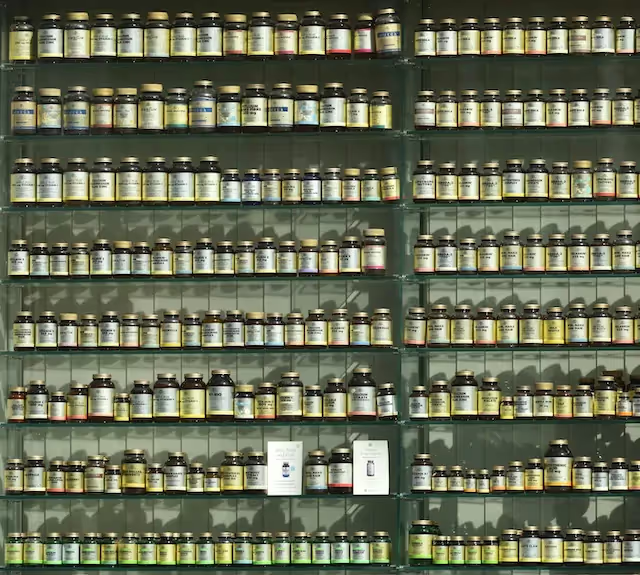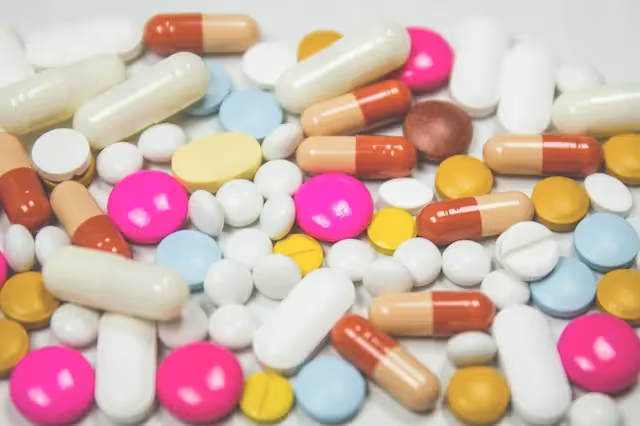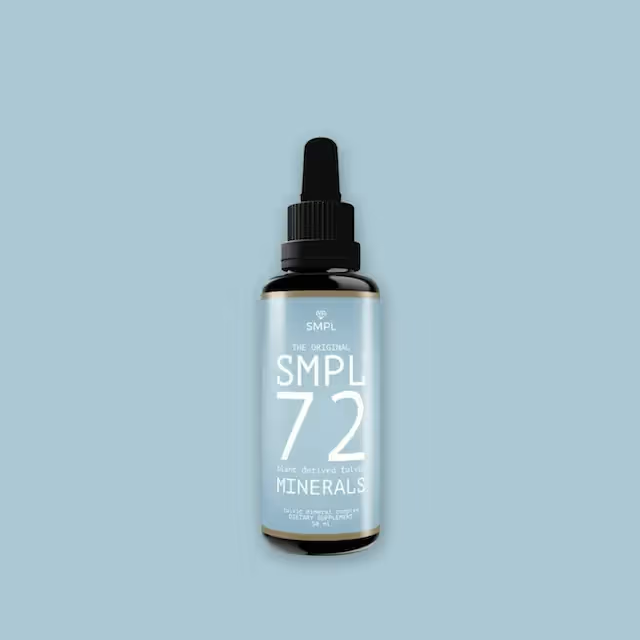
The Truth About Dietary Supplements

Influencers like to lead the supplement industry and are generously rewarded for that. The truth is not taken so closely.

Influencers Netherlands
Arjen Lubach says that healthy people do not need dietary supplements. The only reason they are there is because they make a lot of money. Influencers willingly let themselves be put in the lead in the industry and are of course generously rewarded for that. In doing so, they make the most questionable claims. So it's time to put a permanent end to these malicious practices, says Lubach. The tone has been set. Let's have a look.

The Truth About Dietary Supplements
Lubach does have a point when he says that a lot of money is made from questionable products with dubious claims in the dietary supplement industry. The law is very strict about what you can and cannot say. As Lubach also shows, these rules are very ambiguous. The law is also very ambiguous about what can be on the labels. For example, you can say that a product is natural if only 5% of its content is of natural origin. Moreover, the qualification “of natural origin” says very little about the quality of the product. After all, at least as important as what it was made of is how it was processed.

The food industry
The food supplement industry is dominated by parties that have only one goal in mind and that is profit maximization: reaching the largest possible group with products that you produce as cheaply as possible and can sell for the highest price. It is a shadow game by “make believe'and deception. Of course, everything within the limits of the law.

Do you need food supplements?
The official answer from the voedingscentrum.nl is that most people do not need dietary supplements if they follow a varied diet. In their view, a varied diet offers everything a person needs to stay healthy. The Nutrition Center is not known for its progressive views on nutrition and health. After all, how does she explain that although people are getting older, they are becoming chronically ill at an increasingly younger age? And what can you do about it next? The Nutrition Center still owes us the answer to these questions, which is why people themselves look for satisfactory answers. If you are going to ask these questions for the first time, you are very susceptible to the great promises of the nutritional supplement farmers. It is not easy to find your way through the supplement jungle as a layman.

Ultra-processed foods
The industry's standard answer to whether you need supplements is that since World War II, the quality of our food has been drastically reduced and contains significantly fewer nutrients due to ultra-processed foods. That is why people get sick earlier and nutritional supplements are necessary to eliminate these chronic deficiencies. It is difficult to determine what dose of nutrients is needed for a healthy life.
The problem with this reasoning is that science has only been able to determine that people will become ill if there are very serious deficiencies. What the exact dose of nutrients is to be and stay fit and vital is very difficult to show and subject to debate. Orthomolecular therapists believe that almost all diseases can be traced back to a lack of vitamins and minerals and that you can therefore make people better by administering a large dose of nutrients. So food supplements as medicine.
In any case, it is very difficult to provide scientific evidence when it comes to nutrition. The scientific studies fly around you and they often contradict each other. These studies provide no hard evidence, at most a suspicion. No wonder that official bodies such as the Nutrition Center are so quiet and that many doctors and therapists from the regular circuit go along with this.

Orthomolecular Medicine
Not only determining a healthy dose of nutrients is very difficult, but also determining the influence that these substances have on each other. And I am not taking into account all those substances whose science does not know exactly what their function is. Determining the correct dosage is the raison d'être of orthomolecular medicine. It is an in-depth and time-consuming study and here, too, you may wonder whether they are right. Hard evidence is simply missing. Let alone that a layman or the Vitaminstore sales clerk can determine what you need and to what extent.All in all, no real recommendations for dietary supplements...
Healthy living tips...
Nevertheless, the idea that you can strengthen or even regain your health by taking a few tablets is apparently so attractive that many billions are spent annually. So it's a lucrative business. Even without hard evidence, you can make a lot of money with healthy living tips and supplements! Consumers buy anyway. People are irrational creatures and I understand that Lubach understands the irony of that.

Scurvy
Just because science hasn't found hard evidence yet doesn't mean it isn't true. That everything about food supplements is nonsense. You could just as easily say that science seriously fails to show that even the most obvious is true. Everyone knows that an apple is good for you. However, science has no hard evidence for this. Is that why eating an apple makes no sense? No, of course not! The law even prohibits lemon growers from claiming that eating them is highly effective against scurvy!
That privilege is only reserved for pharmacy after having carried out extensive and very expensive double-blind tests. No one will deny the principle and usefulness of nutrients, but how best to get them is a matter of common sense. As a principle, supplementing our diet with nutrients with supplements is not nonsense. Whether it is effective depends on many factors. What is the origin, how has it been processed, has the natural context been preserved, what is the final composition, how is it preserved and what is the dosage?

Foodies
Our conviction at SMPL is that the closer you are to “how mother nature intended it”, the better. So the ideal is a diet consisting of only fresh ingredients that are not supplemented with supplements. Foodies show it every day. But how achievable is that? Maybe when you have nothing else to do and you've made cooking your hobby. Not for mere mortals like me and many others with me. The reality for most of us is that cooking a fresh meal without ready-to-eat ingredients has become a rarity. And that is inevitably at the expense of nutritional value. The more processed food we prepare, the worse it gets. With the absolute low point, of course, ultra-processed foods. But even for real foodies, pre-cut vegetables are the rule rather than the exception. And for the sake of convenience, I'm not taking into account the declining quality of fresh ingredients as a result of intensive farming. In short, the average consumer eats very average quality food and that is only getting less.The question then is whether our food still contains enough nutrients for a healthy and vital life. The nutrition center says so, but a growing group of consumers sees it differently.
Organic Fulvic Acid
Suppose it is true that our food does not contain enough nutrients, how to proceed? At SMPL, we say: “Start with the basics: minerals” Because of all nutrients, minerals are the only ones that are not made by organisms such as plants and animals. Minerals come from the soil, it is 'the dust of the earth'. And if they're not in the soil, they're not in our food either.
Problem recognized by WHO and FAO
Exactly that is a global problem recognized by WHO and FAO. Science has established the physical benefits of 16 minerals. The other 56 minerals are not (yet) known for sure, so they have not been officially declared essential for a healthy body. However, there are strong indications that they are indeed useful. Our common sense says that if man is made of 'the dust of the earth' that it is no less than logical that all that dust - or rather minerals, must be present in our body.

Quality of food supplements
So fulvic acid supplementation, but before I go into that further, I would like to discuss the quality of supplements in general.
What is it determined by?
- The origin
Is it natural or synthetic? The difference between natural vitamin C and synthetic (ascorbic acid) is like a tree that is fully blossoming into a dead trunk with bare branches. Real vitamin C has vitality, but counterfeit does not. In addition, synthetic is by definition foreign and therefore harmful. With this simple award, we can disqualify the vast majority of supplements on the market because they are partly or partly synthetic in composition. Even natural supplements often contain synthetic ingredients and cheap fillers that are harmful to the body. It is for this reason that there is always a warning not to exceed the RDA. Too many of these substances can be pathogenic. - Transport and storage
When it comes to natural and therefore perishable raw materials, the duration and method of transport and storage have direct consequences for the quality of the end product. It is difficult for consumers to check whether the raw materials were really still fresh when they arrived at the factory. - The context
The origin may be natural, but is the context still so? Many supplements consist of nutrients that have been extracted from their natural context, which is precisely there to protect the nutrients against degradation. Moreover, this natural context often consists of so-called co-actors without which the nutrient in question is much less effective or less easily absorbed. - Processing
When extracting nutrients from their natural context, high temperatures, pressure and/or chemicals are often used. None of these techniques improves the quality and effect of the nutrients. Only simple filtering and pressing techniques have no or very limited negative effects on the end result. - Fillers and additives
Often, manufacturers add all kinds of fillers and additives to the end product to improve the user experience, but also to cut expensive ingredients with cheap ones. These substances are another reason why you are warned not to exceed the RDA. - Preservation
Once a nutrient has been removed from its natural context, it must be protected against degradation through preservation. This can be done by adding preservatives, whether or not synthetic and/or hermetic packaging. For example, you may have pressed black cumin seeds into oil in the traditional way and packaged them in a bottle. However, every time the consumer opens the bottle and exposes the contents to oxygen, it will oxidize. By the time the bottle is almost empty, the oil has oxidized and become rancid to such an extent that its beneficial effects have turned into a pathogenic one.
Seen from this point of view, it is therefore not easy to produce a high-quality and effective food supplement. And certainly not at a low price. You may even sincerely wonder whether it is even possible to produce a high-quality and effective food supplement. Our search ultimately led to SMPL72's plant minerals.
In our view, SMPL72 is not only the perfect food supplement, but also the the one thing you can make sure that every person needs. The latter is evident from the simple fact that the world's soils are depleted and no longer contain the amounts of minerals that were in them roughly 50 years ago. From this, we can conclude with certainty that almost every person has a chronic shortage of minerals. Because even if you cook fresh every day and never eat pre-packaged and ultra-processed foods, you're still not getting enough minerals, let alone the full spectrum of all 72 minerals.
Unprocessed foods
The great thing about SMPL72 is that it is a 100% natural product that is almost unprocessed with no chemicals, no high pressure and/or temperatures have been used. It is extracted from prehistoric humus layers that are 32 million years old. SMPL72 is pure fulvic acid. Fulvic acid is an end product of the degradation of plant residues by soil life. First, humus is created containing humic acids and finally fulvic acid is created. Without fulvic acid, plants would not be able to absorb the minerals from the soil. Fulvic acid is able to bind these inorganic substances and thus make them bioactive. Fulvic acid is soluble in water and is thus absorbed by the plants via the roots.
You could say that dSoil is the stomach of the plant and fulvic acid is the stomach acid that ensures that the food - minerals - is digested and made absorbable. SoUnder vital soil life, no or insufficient fulvic acid is produced and plants have a much harder time getting their food, with all the consequences that entail.
In prehistory, plants grew up to 35 times larger than today and their roots reached correspondingly deeper. In addition, the growth and death cycles of plants were not interrupted for a very long time. This is how huge thick layers of humus could be created. Most of these layers have been lost due to various geological processes, but in a few parts of the Earth, the humus has been preserved and not petrified.
humus
The ancient humus layers from which SMPL72 is distilled are located in the South-East of the US. More than a hundred years ago, they were discovered because there was a farmer in the area whose pigs never got sick. That stood out. After an investigation, it turned out that these pigs were eating on that old humus while rooting. What is beneficial for pigs is that people must have thought then, too, and that's how what we came to call SMPL72 was born.
Our humus is excavated and placed in huge silos filled with pure water. By means of a simple filter process, pure fulvic acid is extracted in no less than 2 years. No additives or anything. You may wonder whether the natural context has remained intact even in this case. A fair question. On the one hand, not, because that's the bottom, after all. On the other hand, you could say that fulvic acid itself is the context of the substances - minerals but also other valuable nutrients that it manages to bind to itself. Fulvic acid is an indestructible and highly stable molecule that can remain unchanged for millions of years. So no special preservation measures need to be taken, other than packaging it hygienically. A substance that is 32 million years old could really last for a few more years.
Natural supplements
- The origin is 100% natural
- The influence of transport and storage on the raw material does not matter
- The context has remained intact
- No chemicals, high temperatures or pressures were used in the processing
- Fillers and additives other than pure water have not been added
- Preservation other than hygienic and airtight packaging is not necessary.
In short, when it comes to dietary supplements, you can't get better than this. And I haven't even mentioned the other nutrients in SMPL72:
- 72 plant minerals (natural bio-active minerals)
- 18 amino acids
- 15 organic acids
- 5 vitamins
- Plus the fact that fulvic acid is also a very powerful antioxidant that easily binds, chemically neutralizes and removes free radicals in the body. So it's the ideal daily detox.

So yes, we also think that you can question most of the nutritional supplements. We are not so much questioning the principle of supplementation, but rather its practical implementation. It is either far too complicated, too expensive and/or of questionable quality. There are exceptions and SMPL72 is one of them. 100% natural, 100% absorbable, 100% powerful, 100% safe, 100% affordable.
Download our product guide here. Or order directly our webshop. With a 100-day money-back guarantee. Ordered before 4 pm (on weekdays), delivered tomorrow!
#Gezondheid #natuurlijkesupplementen #onbewerktvoedsel #influencers #orthomoleculair #foodies #fulvinezuur #fulvicacid #fulvinezuren #fulvicacids















